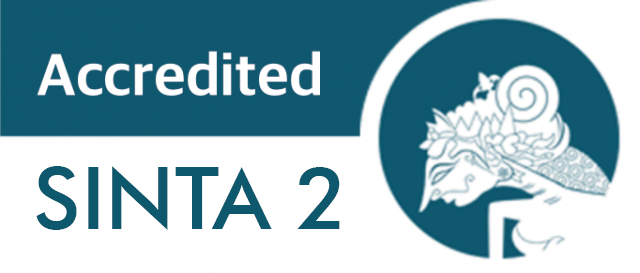Integrating Islamic Environmental Ethics into Basic Education Curricula in The Gambia for a Sustainable Environment
DOI:
https://doi.org/10.15408/tjems.v11i2.42072Keywords:
Integration, Islamic environmental ethics, Curriculum, Basic Education, GambiaAbstract
Abstract
This paper explores integrating Islamic environmental ethics into the curriculum of basic education in the Gambia for a sustainable environment. In this paper, we adopted a qualitative approach to collect data through interviews with ten selected participants from 6 different regions in the Gambia. Our selection of participants was done purposively as we selected individuals who are well-versed in the subject matter. Our findings show that integrating Islamic environmental ethics into the basic education curriculum in The Gambia will not only have a long-term solution to the national environmental issues but rather will also breed a generation that will care for and love their environment, hence the country will have a sustainable ecosystem. However, this paper, therefore, recommends that the Ministry of Basic and Secondary Education to work with Islamic scholars in collaboration with the Ministry of Environment to develop a curriculum that will integrate Islamic environmental ethics in schools in The Gambia.
Abstrak
Artikel ini mengeksplorasi integrasi etika lingkungan Islam ke dalam kurikulum pendidikan dasar di Gambia untuk menciptakan lingkungan yang berkelanjutan. Penelitian ini menggunakan pendekatan kualitatif dengan mengumpulkan data melalui wawancara terhadap sepuluh peserta yang dipilih dari enam wilayah berbeda di Gambia. Pemilihan peserta dilakukan secara purposif dengan memilih individu yang memiliki pengetahuan mendalam tentang topik ini. Temuan kami menunjukkan bahwa mengintegrasikan etika lingkungan Islam ke dalam kurikulum pendidikan dasar di Gambia tidak hanya akan memberikan solusi jangka panjang terhadap masalah lingkungan nasional, tetapi juga akan melahirkan generasi yang peduli dan mencintai lingkungan mereka. Sehingga, negara ini akan memiliki ekosistem yang berkelanjutan. Oleh karena itu, artikel ini merekomendasikan Kementerian Pendidikan Dasar dan Menengah untuk bekerja sama dengan para cendekiawan Islam serta berkolaborasi dengan Kementerian Lingkungan Hidup untuk mengembangkan kurikulum yang mengintegrasikan etika lingkungan Islam di sekolah-sekolah di Gambia.
How to Cite: Ceesay, K., & Sonko, K. L. (2024). Integrating Islamic Environmental Ethics into Basic Education Curricula in The Gambia for a Sustainable Environment. TARBIYA: Journal of Education in Muslim Society, 11(2), 159-178. doi:10.15408/tjems.v11i2.42072.
References
Abdelzaher, D. M., & Abdelzaher, A. (2017). Beyond Environmental Regulations: Exploring the Potential of “Eco-Islam” in Boosting Environmental Ethics Within SMEs in Arab Markets. Journal of Business Ethics, 145(2), 357–371. https://doi.org/10.1007/s10551-015-2833-8.
Ahmad, A. (2015). Islamic Attitudes towards Environmental Problems and Practices : A Case Study of the Muslim Community in Brunei Darussalam. Worldviews: Environment, Culture, Religion, 19(3), 209–225. https://doi.org/10.1163/15685357-01903001.
Bsoul, L., Omer, A., Kucukalic, L., & Archbold, R. H. (2022). Islam’s Perspective on Environmental Sustainability: A Conceptual Analysis. Social Sciences, 11(6). https://doi.org/10.3390/socsci11060228.
Creswell, J. W. (2009). Research Design: Qualitative, Quantitative, and Mixed Methods Approaches. SAGE Publications, Inc., 20(2), 127–133. https://doi.org/10.1080/14675980902922143
Ebneyamini, S., & Sadeghi Moghadam, M. R. (2018). Toward Developing a Framework for Conducting Case Study Research. International Journal of Qualitative Methods, 17(1), 1–11. https://doi.org/10.1177/1609406918817954.
Fua, J. La, Nurlila, R. U., Gunawan, F., & Wekke, I. S. (2018a). Islamic Education on Formation of Environmental Awareness in Pondok Pesantren Indonesia. IOP Conference Series: Earth and Environmental Science, 156(1). https://doi.org/10.1088/1755-1315/156/1/012035.
Fua, J. La, Nurlila, R. U., Gunawan, F., & Wekke, I. S. (2018b). Islamic Education on Formation of Environmental Awareness in Pondok Pesantren Indonesia. IOP Conference Series: Earth and Environmental Science, 156(1). https://doi.org/10.1088/1755-1315/156/1/012035.
Fua, J. La, Umi, R., & Lestari, A. S. (2018). Islamic Education on Formation of Environmental Awareness in Pondok Pesantren Indonesia Islamic Education on Formation of Environmental Awareness in Pondok Pesantren Indonesia.
Gada, M. Y. (2014). Environmental Ethics in Islam: Principles and Perspectives. World Journal of Islamic History and Civilization, 4(4), 130–138. https://doi.org/10.5829/idosi.wjihc.2014.4.4.443.
Gade, A. M. (2019). Muslim Environmentalism Religious and Social Foundations. Columbia University Press.
Gade, A. M. (2023). “Muslim Environmentalisms and Environmental Ethics: Theory and Practice for Rights and Justice.” Muslim World, 113(3), 242–259. https://doi.org/10.1111/muwo.12474
Gulzar, A., Islam, T., Khan, M. A., & Haq, S. M. (2021). Environmental Ethics towards Sustainable Development in Islamic perspective. Ethnobotany Research and Applications, 22. https://doi.org/10.32859/ERA.22.39.1-10.
Härkönen, U. (2007). The Bronfenbrenner ecological systems theory of human development. 1–19.
Haywood, I. (1980). Environmental education in the Islamic world: a tri-pasite approach. Ekistics, 47(285), 432–435.
Herdiansyah, H., Jokopitoyo, T., & Munir, A. (2016). Environmental Awareness to Realizing Green Islamic Boarding School (Eco-Pesantren) in Indonesia. IOP Conference Series: Earth and Environmental Science, 30(1). https://doi.org/10.1088/1755-1315/30/1/012017.
IMF. (2023). THE GAMBIA SELECTED ISSUES. http://www.imf.org.
Majeri Mangunjaya, F. (2011). DEVELOPING ENVIRONMENTAL AWARENESS AND CONSERVATION THROUGH ISLAMIC TEACHING. Source: Journal of Islamic Studies, 22(1), 36–49. https://doi.org/10.1093/iis/etg067.
Majeri Mangunjaya, F., & Elizabeth McKay, J. (2012). Reviving an islamic approach for environmental conservation in indonesia. Worldviews: Environment, Culture, Religion, 16(3), 286–305. https://doi.org/10.1163/15685357-01603006.
Mangunjaya, F. M. (2011). Developing environmental awareness and conservation through Islamic teaching. Journal of Islamic Studies, 22(1), 36–49. https://doi.org/10.1093/jis/etq067.
Moyer, J. M., & Scharper, S. B. (2019). The Fabric of Faith-Based Environmentalism in Canada. Source: Worldviews, 23(1), 33–58. https://doi.org/10.2307/26954010.
Muhamad, A., Syihab, A. H., & Ibrahim, A. H. (2020). Preserving Human–Nature’s Interaction for Sustainability: Quran and Sunnah Perspective. Science and Engineering Ethics, 26(2), 1053–1066. https://doi.org/10.1007/s11948-020-00192-7.
Nakissa, A. (2021). Rethinking religious cognition and myth: A new perspective on how religions balance intuitiveness and interest-provokingness/memorability. In Journal of Cognition and Culture (Vol. 21, Issue 1, pp. 112–137). Brill Academic Publishers. https://doi.org/10.1163/15685373-12340099.
Phillips, M. H. (2008). Micro and macro approaches to environmental education. U568094, 1. http://ezproxy.nottingham.ac.uk/login?url=https://search.proquest.com/docview/1779212209?accountid=8018 http://sfx.nottingham.ac.uk/sfx_local/?url_ver=Z39.88-2004&rft_val_fmt=info:ofi/fmt:kev:mtx:dissertation&genre=dissertations+&+theses&sid=ProQ:ProQue.
R. Rizk, R. (2014). Islamic environmental ethics. Journal of Islamic Accounting and Business Research, 5(2), 194–204. https://doi.org/10.1108/JIABR-09-2012-0060.
Thohri, M. (2024a). Development of Environmentally Conscious Islamic Religious Education Curriculum at Elementary, Secondary, and Tertiary Education Levels. Journal of Advances in Education and Philosophy, 8(02), 76–87. https://doi.org/10.36348/jaep.2024.v08i02.005.
Thohri, M. (2024b). Development of Environmentally Conscious Islamic Religious Education Curriculum at Elementary, Secondary, and Tertiary Education Levels. Journal of Advances in Education and Philosophy, 8(02), 76–87. https://doi.org/10.36348/jaep.2024.v08i02.005.
Viennet, R., & Pont, B. (2017). Education Policy Implementation: A Literature Review and Proposed Framework. OECD Education Working Papers, No. 162. OECD Education Working Papers, 162(December), 63. www.oecd.org/edu/workingpapers.
Walsh-Daneshmandi, A., & MacLachlan, M. (2006). Toward effective evaluation of environmental education: Validity of the children’s environmental attitudes and knowledge scale using data from a sample of Irish adolescents. Journal of Environmental Education, 37(2), 13–23. https://doi.org/10.3200/JOEE.37.2.13-23.











